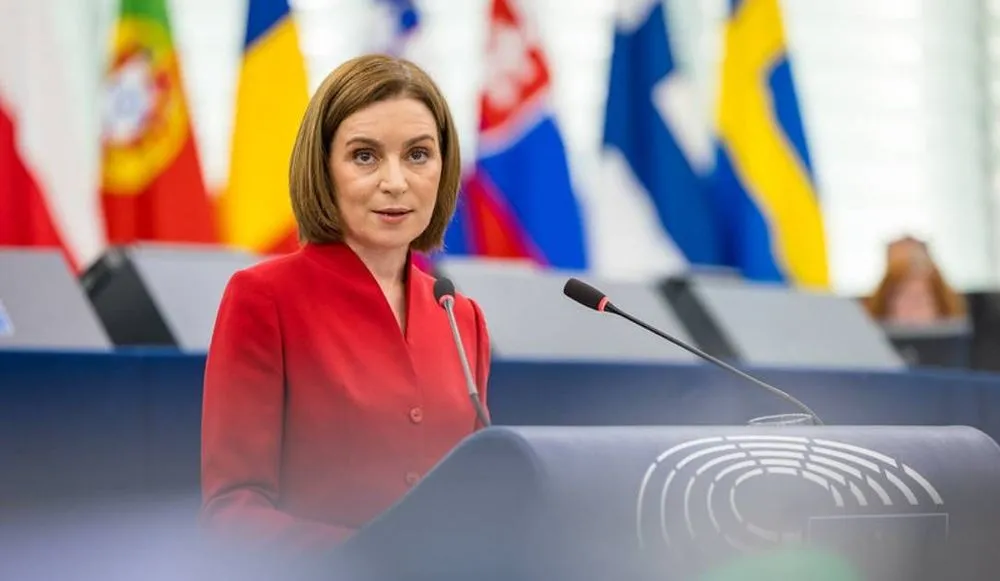Russia steps up disinformation efforts to sway Moldova’s parliamentary vote
Russia is ramping up disinformation campaigns and covert influence operations ahead of Moldova’s parliamentary election in an attempt to block its path to the European Union, according to Western researchers, leaked documents and Moldovan officials.
Moldovans will elect a new parliament on September 28 when President Maia Sandu’s ruling Party of Action and Solidarity (PAS) faces off against a coalition of pro-Russian opposition forces.
Sandu won reelection in November 2024 in a runoff against former Moldovan Prosecutor General Alexandr Stoianoglo despite attempts by Russia-linked entities to sway the vote.
According to a report by the Institute for the Study of War (ISW) earlier in September, the Kremlin is again trying to interfere in the 2025 parliamentary elections to prevent the ruling party from retaining its majority.
“These election influence campaigns are part of Moscow’s overall efforts to achieve its long-held strategic objective of preventing Moldova from integrating with the West,” researchers said.
Fake news network
The BBC reported over the weekend that a Russian-funded network was recruiting Moldovans to post propaganda on TikTok and Facebook, paying them about 3,000 lei ($170) each month via sanctioned Russian Promsvyazbank.
Recruits were instructed to use artificial intelligence to generate content attacking Sandu and the PAS with unfounded claims — including that the government planned to rig the vote, that EU entry required citizens to change their sexual orientation and that Sandu was linked to child trafficking.
The BBC linked the network to fugitive oligarch Ilan Shor, who has been sanctioned by the U.S. and the U.K. for enabling Kremlin influence operations. It identified at least 90 TikTok accounts that produced thousands of videos with more than 23 million views this year.
Since April, Russia has also been intensifying its Matryoshka and Overload disinformation campaigns designed to spread fake pro-Russian narratives and overwhelm fact-checkers with fabricated content, according to the ISW.
These operations are part of Russia’s larger Doppelganger campaign, which aims to “clone” legitimate websites of media outlets and public institutions to spread propaganda.
Moldovan law enforcement is conducting searches targeting individuals suspected of involvement in pro-Russian influence operations.
Last week, authorities seized about $302,000 in raids on what they described as Russian-backed money-laundering schemes and shut down a media outlet accused of spreading propaganda linked to Shor.
On Monday, local police detained dozens of people as part of an investigation into an alleged Russia-backed plot to incite mass unrest. Police said raids targeted more than 100 individuals in multiple localities.
Kremlin playbook
According to a Bloomberg report on Monday citing leaked Kremlin documents, Moscow drew up a strategy to weaken Sandu in the parliamentary vote and ultimately remove her from power.
The plan, exposed in leaked documents, outlined efforts to mobilize Moldovan diaspora voters, stage street protests and launch coordinated disinformation campaigns on TikTok, Telegram, and Facebook. While Bloomberg could not confirm the plan was being implemented, two European officials familiar with the matter said it was “almost certain” Russia intended to follow through on most of it.
The ISW said Russia appears to be learning from its interference in the 2024 Romanian presidential election, particularly in the extensive use of TikTok, which was previously exploited by pro-Russian ultranationalist Calin Georgescu — who won the first round of an annulled vote — to promote his campaign.
Researchers said the primary objective of Russia’s influence campaigns is to secure a Kremlin-friendly majority in Moldova’s parliament.
“A Kremlin-friendly government in both Chisinau and Tiraspol [the self-proclaimed capital of Transnistria, a pro-Russian enclave inside Moldova] would simultaneously allow the Kremlin to threaten NATO to Moldova’s west and Ukraine to its east,” the ISW added.
Daryna Antoniuk
is a reporter for Recorded Future News based in Ukraine. She writes about cybersecurity startups, cyberattacks in Eastern Europe and the state of the cyberwar between Ukraine and Russia. She previously was a tech reporter for Forbes Ukraine. Her work has also been published at Sifted, The Kyiv Independent and The Kyiv Post.



